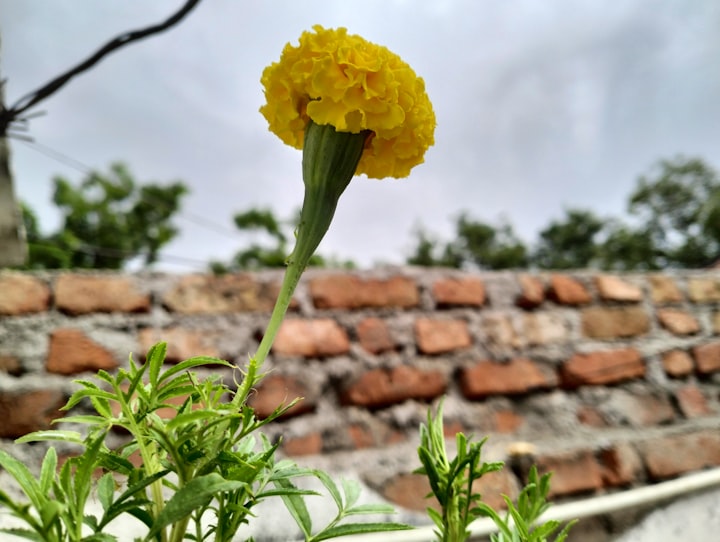Mindful Parenting
Nurturing Children's Mental Health in a Fast-Paced World

In today's fast-paced world, parenting can be a challenging and demanding task. As parents, we often find ourselves juggling multiple responsibilities, managing work-life balance, and navigating the constant influx of information and distractions. In the midst of it all, it is crucial to prioritize our children's mental health and well-being. Mindful parenting offers a holistic approach to nurturing our children's mental health, fostering their emotional development, and creating a supportive and nurturing environment for their growth.
Mindful parenting is about being fully present and engaged in our interactions with our children. It involves cultivating a state of awareness and attentiveness to the present moment, without judgment or preconceived notions. By practicing mindfulness, we can develop a deeper understanding of our children's needs, emotions, and experiences, allowing us to respond to them with empathy, compassion, and patience.
One of the fundamental principles of mindful parenting is the importance of self-care. Taking care of ourselves emotionally, mentally, and physically is essential for our ability to be present and attuned to our children. When we prioritize self-care, we model healthy habits and demonstrate to our children the value of self-nurturing and self-compassion. This can include activities such as practicing mindfulness, engaging in hobbies or activities we enjoy, and taking time for rest.
Building emotional connections with our children is another key aspect of mindful parenting. It involves creating a safe and nurturing space where children feel comfortable expressing their emotions and thoughts without fear of judgment or punishment. By actively listening to our children, validating their feelings, and offering support, we can foster a strong emotional bond and promote their emotional well-being.
Mindful communication is also crucial in mindful parenting. It involves being attentive to our words, tone, and non-verbal cues when interacting with our children. By practicing active listening, speaking kindly and respectfully, and avoiding criticism or harsh judgment, we create an environment that promotes open and honest communication. This helps to build trust, strengthen relationships, and enhance our children's self-esteem and self-expression.
Setting boundaries and establishing routines are essential elements of mindful parenting. Clear and consistent boundaries provide children with a sense of security and structure, helping them to understand expectations and navigate their world. Routines offer stability and predictability, supporting children's emotional regulation and providing a framework for their daily activities. Mindful parents approach boundaries and routines with flexibility and adaptability, taking into account their children's individual needs and development.
Incorporating mindfulness practices into daily life can greatly benefit both parents and children. Mindful activities such as mindful breathing exercises, guided visualizations, or body scans can help children develop self-awareness, emotional regulation, and resilience. These practices can be integrated into everyday routines, such as mealtime, bedtime, or during transitions, to create moments of presence and connection.
In addition to mindfulness, it is important to provide opportunities for children to engage in activities that promote their mental and emotional well-being. Encouraging creative expressions, such as art, music, or imaginative play, allows children to explore their emotions, express themselves, and develop problem-solving skills. Physical activities and time spent in nature also contribute to children's mental health, promoting physical fitness, reducing stress, and enhancing their overall well-being.
It is crucial to remember that mindful parenting is a journey, and it is okay to make mistakes and learn from them. Parenting is a complex and ever-evolving process, and there is no one-size-fits-all approach. By approaching parenting with mindfulness, self-compassion, and a willingness to grow and adapt, we can create a nurturing and supportive environment that promotes our children's mental health and sets the foundation for their overall well-being.
In conclusion, mindful parenting offers a transformative approach to nurturing children's mental health in a fast-paced world. By cultivating mindfulness, practicing self-care, building emotional connections, fostering mindful communication, setting boundaries, and integrating mindfulness into daily life, parents can create a supportive and nurturing environment that promotes their children's mental well-being. Mindful parenting is a journey of self-discovery, growth, and love, and it empowers parents to navigate the complexities of parenting with intention, presence, and compassion.
Want to learn how to monetize your youtube and get the best result, click on this link: https://tinyurl.com/3khjzxu9
About the Creator
Ifeyinwa Ulasi
I am a literary alchemist crafting enchanting worlds in short stories. Prepare to be captivated as my words paint vivid landscapes, evoke deep emotions, and transport you to realms both familiar and fantastical.






Comments
There are no comments for this story
Be the first to respond and start the conversation.